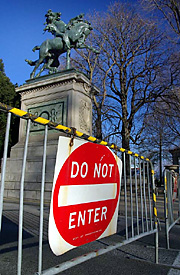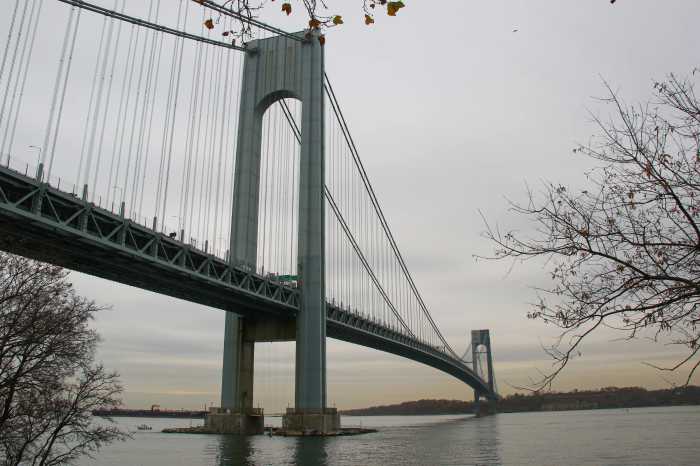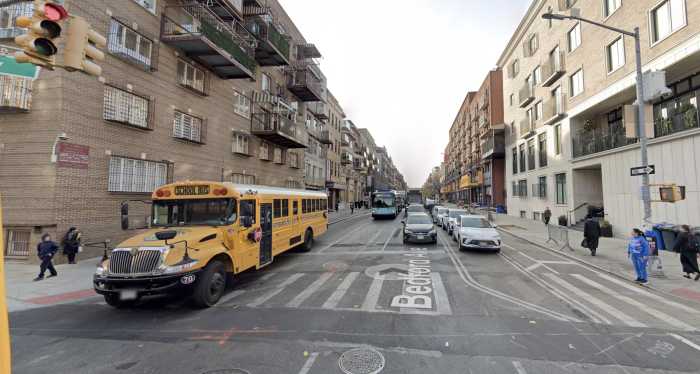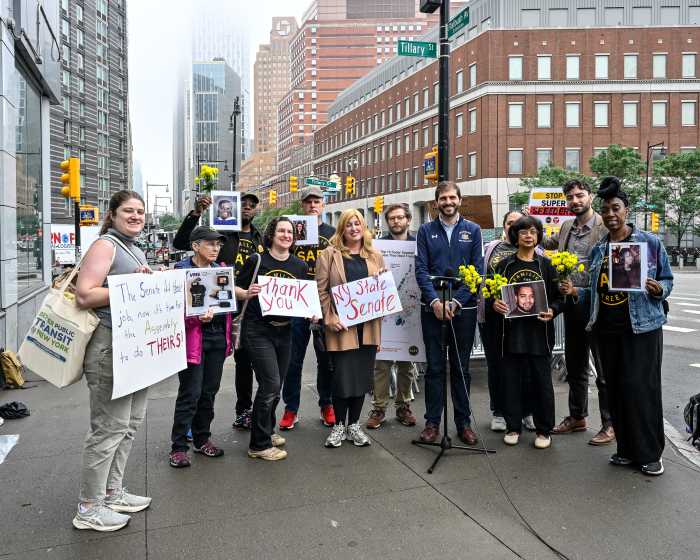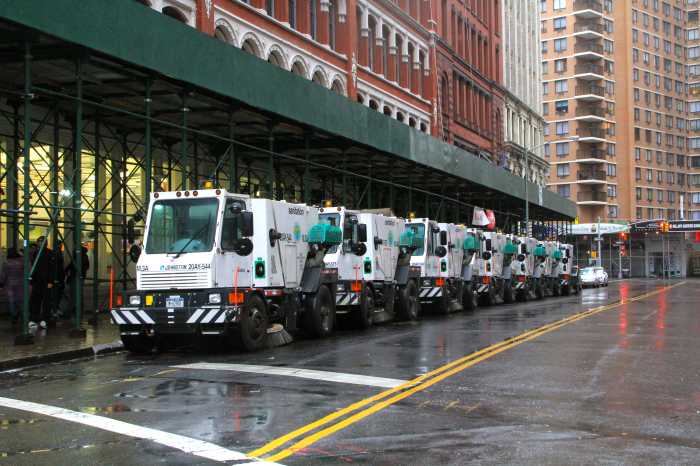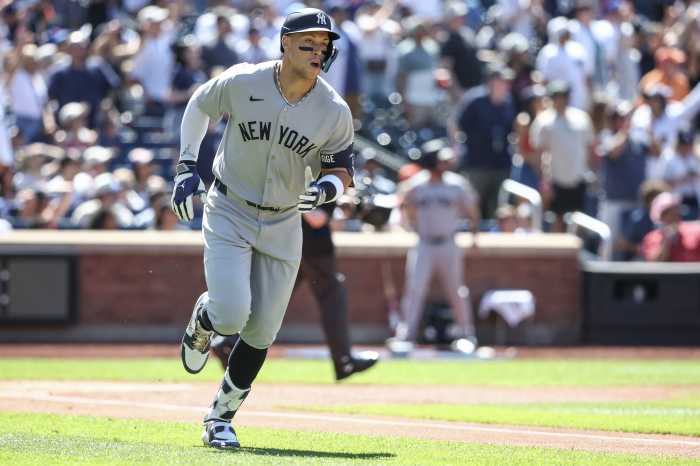Countering a wave of bike-friendly initiatives, community groups rallied on Thursday against cycling activists’ calls for a car-free Prospect Park — saying that such a scheme would clog their neighborhoods with the hundreds of vehicles that currently use park roads during morning and evening rush hours.
Even though the Department of Transportation says it has no plans to ban cars from the park — which is open on weekdays to northbound traffic from 7 to 9 am and the southbound traffic from 5 to 7 pm — Community Boards 7 and 14, the Windsor Terrace Alliance and Assemblyman Jim Brennan (D–Park Slope) held a preemptive press conference and urged the city to keep cars in Prospect Park.
“We’re concerned about issues of exhaust emissions and noise,” said Community Board 14 Chairman Alvin Berk, who predicted that banning cars in the park would dump 400 additional vehicles each hour onto Parkside Avenue between Park Circle and Ocean Avenue, citing a Department of Transportation study.
“During the morning rush hour, it already backs up,” Berk said. “Closing the park would create additional backups and additional exhaust.”
The community groups — which deem themselves “pro-neighborhood” not “anti-bike” — are fighting against a trend of lengthening car-free hours in the park, which started in the 1970s when the city closed Prospect Park to Sunday drivers.
“There is a conflict between people using the park and traffic in the park — but there is also a conflict between people in our neighborhood and traffic in our neighborhood,” said Jeremy Laufer, district manager of Community Board 7.
Laufer’s board chairman, Randy Peers, put that “conflict” into stark relief, using the press conference to slam Transportation Alternatives for pushing pro-bike and anti-car initiatives too hard.
“We abhor the tactics of the bicycle advocacy group,” said Peers. “They tried the same tactics when they tried to shove Residential Parking Permits down our throats. They’re a well-financed advocacy group representing a minority view.”
Last year, the city reduced traffic on the East Drive after Transportation Alternatives and other cycling activists pressured Mayor Bloomberg to apply the same pro-biking and walking policies to Prospect Park that he applied to Central Park in Manhattan.
That decision resulted in increased traffic back-ups that vary depending on the time of the day and the season, according to community groups.
But biking advocates — who are calling for a three-month no-car test period to measure air quality, traffic volume and crash rates — argue that traffic won’t be a problem.
“Whenever Prospect Park has gotten more car-free hours, the same people have said that the sky is falling and here we are a generation later and the sky hasn’t fallen,” said Transportation Alternatives spokesman Wiley Norvell. “But that hasn’t happened yet. Just because you restrict automotive traffic on one artery doesn’t mean that every single car will turn out on adjacent roads — that’s not the way traffic works.”
This most recent flare-up in the war between bikers, walkers and motorists comes after Transportation Alternatives delivered 10,000 signatures to Mayor Bloomberg last month urging him to rid cars from Prospect Park — a decision they say would have little impact on neighboring communities, but would noticeably improve the park for cyclists and walkers.
“When cars enter the park in the morning and the evening — during what should be peak recreation time — people leave the park in droves,” said Norvell.
Biking activists also argue that limiting cars would make the park safer because under the current hours, walkers, cyclists and drivers aren’t expecting to encounter each other along the leafy drive — where Park Slope resident Rachel Fruchter was killed in 1997 after colliding with a van in a section of the loop that was supposed to be car free.
Despite the calls from Transportation Alternatives — who said that 90 percent of cars in the park exceed the speed limit of 30 miles per hour (sometimes reaching speeds of 50 miles per hour) — both the pro-bike crowd and the concerned community groups might be spinning their wheels in vain.
“We extended the hours of the park’s closure to vehicles last year, but we have no plans for a complete closure at this time,” said Department of Transportation spokesman Scott Gastel.


